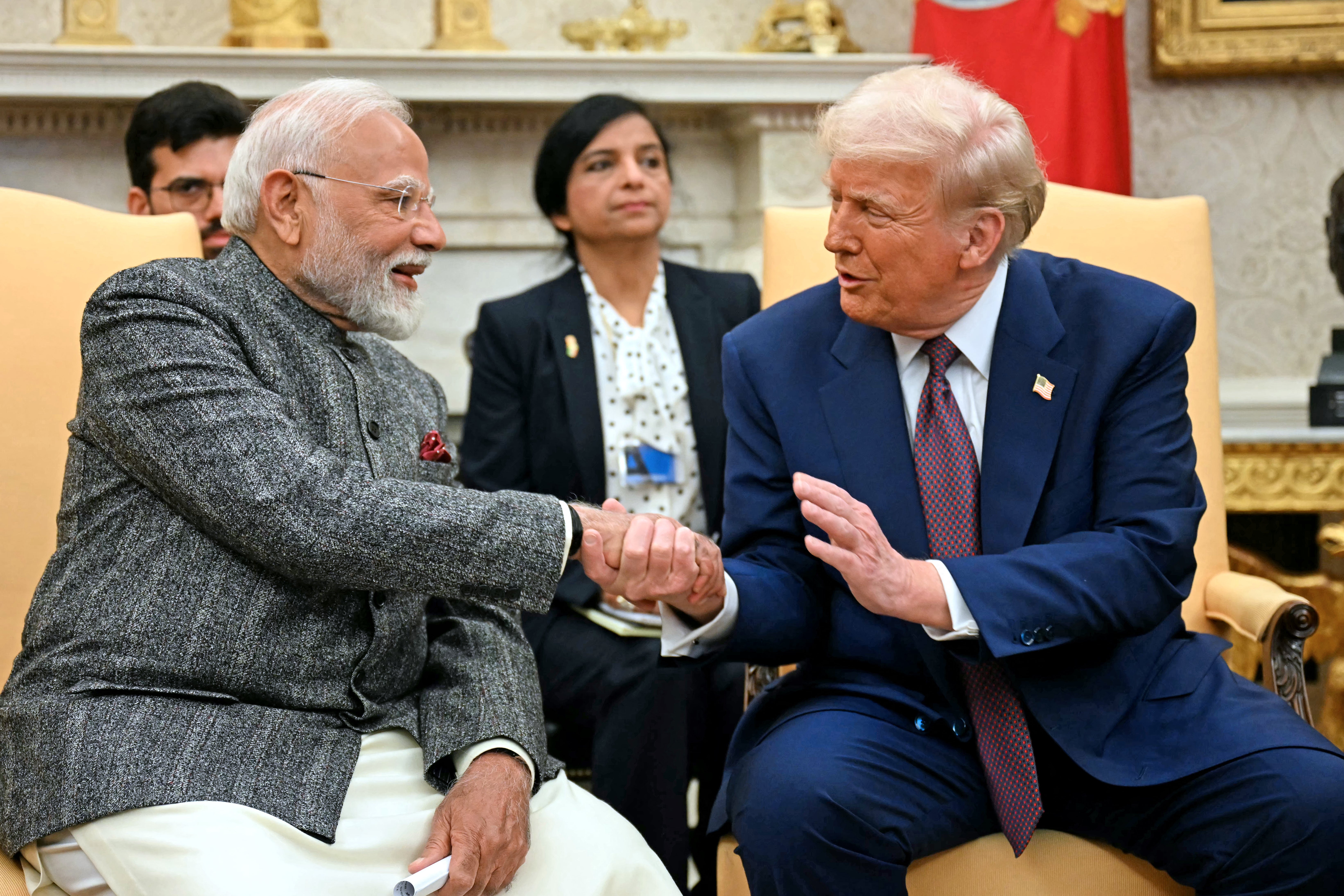Donald Trump says ‘friend’ India will be hit with 25% tariff plus penalties over its ties to Russia

Donald Trump has said he will hit “friend” India with 25 per cent tariffs “plus a penalty” from 1 August in part due to its ties with Russia.
Mr Trump’s deadline for US trade partners to ink agreements ends on 1 August, but New Delhi is yet to finalise a deal.
Writing on his platform Truth Social on Wednesday, Mr Trump said India’s own protectionist policies over the years had meant America had “done relatively little business with them”.
“Also, they have always bought a vast majority of their military equipment from Russia, and are Russia’s largest buyer of ENERGY, along with China, at a time when everyone wants Russia to STOP THE KILLING IN UKRAINE — ALL THINGS NOT GOOD!” he wrote.
He did not specify what he meant by a “penalty” above and beyond the high rate of tariffs.
New Delhi and Washington were set to resume trade negotiations next month and the Indian side had expected a deal to be reached in September or October.
India is banking on this deal to boost bilateral trade from $190bn to $500bn by 2030. India enjoys a trade surplus of about $46bn with the US.
Mr Trump imposed a 26 per cent tariff on Indian goods in April. Although steep, the levy was lower than the total 104 per cent imposed on China, 49 per cent on Cambodia, and 46 per cent on Vietnam.
The levy followed earlier specific tariff hikes, including a 50 per cent duty on Indian steel and aluminium, prompting New Delhi to seek exemptions and concessions.
An unnamed Indian government official who spoke with Reuters said “talks are progressing well” and described Mr Trump reissuing a steep basic tariff as a “worst-case scenario”.
“But we assume it would be temporary measure, considering the five rounds of trade talks that have taken place,” the official said. “A deal will soon be worked out.”

The US president reiterated his claim this week that he forced India and Pakistan back from the brink of nuclear war by threatening to stop trade talks with both countries.
Although the Indian government has sought to project warm ties with Mr Trump, it has publicly objected to his claim.
Pakistan, in contrast, has acknowledged Washington’s role in mediating a ceasefire after four days of intense fighting.
New Delhi previously offered to steeply cut its tariffs on a range of US goods and assured Washington that it was working to ease non-tariff barriers. It has drawn a red line when it comes to its primary economic sectors of agriculture and dairy, however, terming them “no-go” areas for talks.
Indian officials said they were also unwilling to allow US imports of genetically modified soybean or corn products.
US trade representative Jamieson Greer said the negotiations with India needed more time, emphasising that Mr Trump wanted good deals, not fast ones.
India had shown “strong interest in opening portions of its market” to the US even though its trade policy had long focused on protecting domestic interests, Mr Greer said.
India officials said New Delhi was calibrating a strategy amid broader US tariff threats targeting Brics nations over Russian oil purchases and de-dollarisation. Mr Trump earlier this month threatened to impose an additional 10 per cent tariff on any nation aligning themselves with the “anti-American policies” of the Brics group of developing countries, which includes India as one of its most prominent members.
